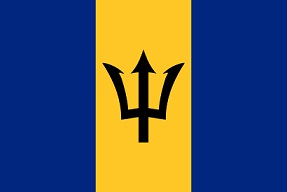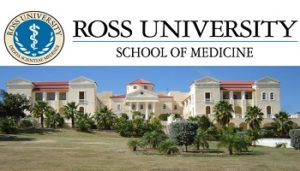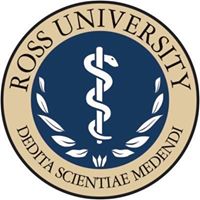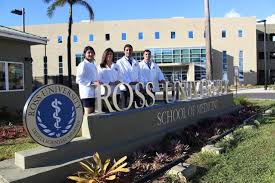Go Lean Commentary
“Come home Bajans …”
“… in 2020”?
This is the campaign challenge to all Barbadian (Bajan) Disapora, to consider coming back to Barbados. For good! (See the story of a sample repatriate/re-patriot in the VIDEO in the Appendix below).
Is this the vision? Yes, this is the hope that is expressed by the island-nation’s Prime Minister:
During her address, the Prime Minister highlighted some of the struggles this country faced in the past and stressed that democracy was a precious gift that must be nurtured and protected, so persons would always have a voice.
She noted that all Barbadians, not only the 300,000 living here but those overseas, must all work together to build the best Barbados.
(See full article below).
But wait, is the Honorable Prime Minister Mia Amor Mottley openly admitting that the country is NOT yet at that destination? But still, she is calling for Bajans to come home.
In all due respect, Madam Prime Minister, “they” are not listening. The Diaspora – of all Caribbean countries – never listens to the appeals of their former homelands. Alas, Barbados is not the first to waste time, talent and treasuries to engage their Diaspora and urge them to come back and/or to invest in the homeland.
This quest had been pursued throughout the Caribbean. Yet the failures has been loud.
Why? Because they – the Diaspora – are gone!
Yes, there is this preponderance for governments (and citizenry alike) in the region to pursue this same Diaspora strategy. During the calendar year of 2017, we published a number of commentaries on this Caribbean pre-occupation, with these entries relating these homelands:
- Grenada – November 3, 2017 – https://goleancaribbean.com/blog/?p=13438
- Dominica – October 18, 2017 – https://goleancaribbean.com/blog/?p=13288
- Haiti – September 30, 2017 – https://goleancaribbean.com/blog/?p=13105
- Jamaica – September 20, 2017 – https://goleancaribbean.com/blog/?p=13040
- Bahamas – September 4, 2017 – https://goleancaribbean.com/blog/?p=12911
- St. Lucia – March 3, 2017 – https://goleancaribbean.com/blog/?p=10657
The Diaspora is not the panacea, or cure-all, for the Caribbean ills. This is the assertion of the movement behind the book Go Lean … Caribbean – available to download for free. Why are we so emphatic in this assertion? The troubling flaw for the Diaspora strategy is that the expectation is that these people who have left ‘here” will now turnaround and fix what is broken here. This is a fallacy! This mistake was committed by these previous governments and unfortunately is being pursued anew in Barbados. See the full news article here:
Title: Come Home Bajans In 2020
By: Sharon AustinPrime Minister Mia Amor Mottley has urged Barbadians living across the world to come home for 2020.
Ms. Mottley made the appeal tonight at the launch of We Gatherin’ Barbados 2020 in Parliament’s Courtyard before a large crowd, including those “watch parties” of Barbadians and friends in Geneva, New York, Beijing, Canada, Washington and Australia.
The Prime Minister told her audience: “Coming together in 2020 isn’t about a single moment in time, but it is about a process. It is about the building of a nation from St. Lucy to St. Philip, from the west coast to the east coast…. 2020 must be about defining who we are as that one people, in this one space….
“2020 is that point, ironically, where vision is perfected, but we have a bigger vision ahead of us…. We, as Barbadians, will play that role because we…live in a world that we see changing around us, and by 2030 we want to be that country in the world that…will no longer contribute to the destruction of mother earth, but that will work to make our placement on this earth carbon neutral.”
Ms. Mottley noted that Barbados was accustomed to excellence and highlighted the island’s lead in cane breeding in the 19th century. She asked how did the country reach such levels of excellence in so many fields, but failed to tell the story to citizens to inspire them to greater heights, not just here, but in the world.
“So 2020, my friends, is about that conversation…telling our story, sharing our passions, coming home for that inspiration…. 2020 is about making that difference to your old primary school or making that difference to the church that helped nurture you in your parish. 2020 is about families recognizing that time on this earth is way too short and we need to get together a little more,” she explained.
She added that Barbados must be that place where global business must be transacted.
During her address, the Prime Minister highlighted some of the struggles this country faced in the past and stressed that democracy was a precious gift that must be nurtured and protected, so persons would always have a voice.
She noted that all Barbadians, not only the 300,000 living here but those overseas, must all work together to build the best Barbados.
We Gatherin’ is a 12-month global celebration of Barbadian excellence, and a recommitment to this country’s successful future and core values that have defined us as a people. 2020 has been designated as the year for Barbadians and those who love this country to come home, reconnect with family and friends, and invest in the rebuilding and development of Barbados.
The initiative will begin in the north of the island in January 2020, and move southward every month, allowing each designated parish to showcase its icons, social life and the food for which it is renowned. The parish celebrations will culminate in St. Michael in November, and We Gatherin’ will climax in December in Barbados.
[Author Sharon Austin can be reached at:] sharon.austingill-moore@barbados.gov.bb
Source: Posted February 22, 2019; retrieved April 30, 2019 from: http://gisbarbados.gov.bb/blog/come-home-bajans-in-2020/?fbclid=IwAR1toA1bQXh0epcWWvxGYh2KNdWXjIrCt5-uPHLOZRAa-_csRF9zaIb844Q
This seems so innocent, so practical, yet as a strategy to elevate the Barbadian society, it is so flawed. This was eloquently explained in a previous blog-commentary, as follows:
The premise for the criticism of this Diaspora strategy is that the ones that have fled the region have done so for a reason; they have been “pushed” or “pulled” away from their homeland. They may still love their “past” country, but can only do so much from abroad. Plus, history documents that they are less inclined to invest back in their country; they are burdened with the concerns of today and the future, that it is illogical to think that they are concerned about their yesterdays. Thusly, all efforts to outreach the Diaspora are usually futile. All of these prior commentaries relate this basic truth about catering to the Diaspora:
The subtle [Diaspora outreach] message to the Caribbean population is that they need to leave their homeland, go get success and then please remember to invest in us afterwards.
… It is so unfortunate that the people in the Caribbean are beating down the doors to get out of their Caribbean homeland, to seek refuge in these places like the US, Canada and Western Europe. … As a result, we have such a sad state of affairs for our Caribbean eco-system as we are suffering from a bad record of societal abandonment.
Thank you, all Diaspora members that have looked back and lent a hand, but the heavy-lifting of reforming and transforming our society must really come from the people who are in the homeland and in the region. For starters, we must try to dissuade people from leaving in the first place and help them to prosper where planted. The record shows that those who do leave, tend to be the ones that we can least afford to lose. These include the professional classes and highly educated ones; one report presents an abandonment rate of 70 percent of the college-educated populations.
Picture a family with limited food supply, serving dinner and “making extra plates” for family members who have left or passed. This would be illogical. We need to be more pragmatic and work a different strategy to assuage our crisis. We need a strategy that embraces those who are still here, not those that “used to be”.
So the problem of a Diaspora-outreach strategy is that it double-downs on the failure of why the Diaspora left in the first place. We need to employ new strategies for the underlying failures. When we look at our Caribbean homeland and see the many failures, we realize that the people on some islands … and the people in their Diaspora cannot solve the problems in the homeland … alone. No, something bigger and better is needed.
So rather than the strategy to “Invite the Diaspora to Remember Us”, there needs to be a Way Forward with strategies, tactics and implementations to elevate the societal engines of Barbados. This Way Forward has just been exhausted in a series of 9 commentaries for the month of April 2019. The Way Forward is presented in the Go Lean book, as it serves as a roadmap for the introduction and implementation of the Caribbean Union Trade Federation (CU). This will benefit Barbados and the rest of the 30 Caribbean member-states.
The foregoing article asserted that Barbados has been home to excellence in the past. This is so true. A lot of the Diaspora that have left – and/or their children – have excelled in their foreign abodes. Look here at this list:
Reference: Prominent Bajans Around the World
Actors
- Stacey Dash (Bajan father)
- Melyssa Ford
- Jada Pinkett Smith
- Meagan Good
- Cuba Gooding Jr. (father is a first-generation Bajan American)
- Omar Gooding
- David Harewood (both parents Bajan)
- LL Cool J (mother is a first-generation Bajan American)
- Mari Morrow
- Gwyneth Paltrow (White Bajan descendant)
- Redd Pepper
- Rihanna
- Robert Christopher Riley (Trini mother, Bajan father)
- Lamman Rucker (mother is a first-generation Bajan American)
Musicians (sample)
- Afrika Bambaataa – musician
- Alison Hinds
- Damon Dash – co-founder of Roc-A-Fella Records; (Stacey Dash’s cousin)
- Grandmaster Flash – Hip Hop musician and DJ
- Faith Evans – singer and actress
- Doug E. Fresh – Hip Hop musician
- Cuba Gooding, Sr. – singer
- Rayvon
- Rihanna – singer, actress, and fashion designer – real name Robyn Rihanna Fenty
- Tweet – singer, born Charlene Keys
Source: Retrieved April 30, 2019 from: https://en.wikipedia.org/wiki/List_of_Eastern_Caribbean_people#Barbados
An elevated society, allows for accomplished people to accomplish right at home.
The goal of the Go Lean roadmap is to facilitate the Caribbean to be a better place to live, work and play. We would do the heavy-lifting, not expecting some Diaspora member to “swing in and save all of society”. No, the Diaspora is not coming to the rescue. Rather a Caribbean confederacy, constituted by all 30 member-states, is the Way Forward; it is our best option.
By us pointing focus on the Diaspora, it encourages more and more people to abandon the homeland and join the Diaspora. Any country growing their Diaspora is bad for that country and bad for the Diaspora members. Despite the foregoing list of accomplished Bajans, most Diaspora members, only barely survive in the foreign lands, especially the first generation. So any official policy to encourage emigration and living-working-abroad – on a permanent basis – is a flawed policy, not a panacea.
So policies that double-down on the Diaspora is actually doubling-down on failure. There should be no need “to leave and remember”. We should never want people to have to leave. We strongly urge every stakeholder of Barbados, and all of the Caribbean member-states, to lean-in to this roadmap to elevate our homeland.
Yes, we can make our homelands better places to live, work and play. 🙂
About the Book
The book Go Lean…Caribbean serves as a roadmap for the introduction and implementation of the technocratic Caribbean Union Trade Federation (CU), for the elevation of Caribbean society – for all member-states. This CU/Go Lean roadmap has these 3 prime directives:
- Optimization of the economic engines in order to grow the regional economy to $800 Billion and create 2.2 million new jobs.
- Establishment of a security apparatus to ensure public safety and protect the resultant economic engines.
- Improve Caribbean governance to support these engines, including a separation-of-powers between the member-states and CU federal agencies.
The Go Lean book provides 370-pages of turn-by-turn instructions on “how” to adopt new community ethos, plus the strategies, tactics, implementations and advocacies to execute so as to reboot, reform and transform the societal engines of Caribbean society.
Download the free e-Book of Go Lean … Caribbean – now!
Who We Are
The movement behind the Go Lean book – a non-partisan, apolitical, religiously-neutral Community Development Foundation chartered for the purpose of empowering and re-booting economic engines – stresses that reforming and transforming the Caribbean societal engines must be a regional pursuit. This was an early motivation for the roadmap, as pronounced in the opening Declaration of Interdependence (Pages 12 – 13):
xi. Whereas all men are entitled to the benefits of good governance in a free society, “new guards” must be enacted to dissuade the emergence of incompetence, corruption, nepotism and cronyism at the peril of the people’s best interest. The Federation must guarantee the executions of a social contract between government and the governed.
xvi. Whereas security of our homeland is inextricably linked to prosperity of the homeland, the economic and security interest of the region needs to be aligned under the same governance. Since economic crimes … can imperil the functioning of the wheels of commerce for all the citizenry, the accedence of this Federation must equip the security apparatus with the tools and techniques for predictive and proactive interdictions.
xix. Whereas our legacy in recent times is one of societal abandonment, it is imperative that incentives and encouragement be put in place to first dissuade the human flight, and then entice and welcome the return of our Diaspora back to our shores. This repatriation should be effected with the appropriate guards so as not to imperil the lives and securities of the repatriated citizens or the communities they inhabit. The right of repatriation is to be extended to any natural born citizens despite any previous naturalization to foreign sovereignties.
xx. Whereas the results of our decades of migration created a vibrant Diaspora in foreign lands, the Federation must organize interactions with this population into structured markets. Thus allowing foreign consumption of domestic products, services and media, which is a positive trade impact. These economic activities must not be exploited by others’ profiteering but rather harnessed by Federation resources for efficient repatriations.
xxiv. Whereas a free market economy can be induced and spurred for continuous progress, the Federation must install the controls to better manage aspects of the economy: jobs, inflation, savings rate, investments and other economic principles. Thereby attracting direct foreign investment because of the stability and vibrancy of our economy.
Sign the petition to lean-in for this roadmap for the Caribbean Union Trade Federation.
—————-
Appendix VIDEO – Moving to Barbados? – https://youtu.be/zpiNbrk7qXo
Liz Neptune
Published on Sep 1, 2016 – So this is the start of my month-long stay in Barbados, my first attempt at living there. A small intro of things to come. A “vacation” that turned in a self-discovering retreat, an amazing adventure and a 2nd chance at love!!
Rate, comment and Subscribe!
If you enjoy my videos please consider a: 1 Time Donation to Paypal: https://bit.ly/2C3rGyT
or Subscribe to Me: https://www.subscribestar.com/liz-nep…
Check out my MERCHANDISE STORE! https://www.lizneptune.com/shop-1
For photography and film/video services, email liznikols@gmail.com
Connect with me!! IG:
@lizzzneptune
http://www.lizneptune.com
https://www.facebook.com/Neptune-Medi…
SC: tracylorde
TW: @lizzzneptune
- Category: Entertainment

 “Free Movement of People” is one aspect of the Single Market concept that is strongly urged by this commentary. Even though this view is not unanimous in its appeal – in the Caribbean especially – many advanced economies do have Free Movement:
“Free Movement of People” is one aspect of the Single Market concept that is strongly urged by this commentary. Even though this view is not unanimous in its appeal – in the Caribbean especially – many advanced economies do have Free Movement: One country gets it …
One country gets it … This situation caused Minister of Home Affairs, Edmund Hinkson, to say recently, “I as minister of immigration am firmly of the view that we have too small a population for Barbados to sustain and grow this economy and we will have ‘managed migration’ into this country especially among our fellow Caribbean people who are productive, who will make a mark.”
This situation caused Minister of Home Affairs, Edmund Hinkson, to say recently, “I as minister of immigration am firmly of the view that we have too small a population for Barbados to sustain and grow this economy and we will have ‘managed migration’ into this country especially among our fellow Caribbean people who are productive, who will make a mark.” The initials refer to the Caribbean Single Market & Economy, the attempted integrated development strategy envisioned at the 10th Meeting of the Conference of Heads of Government of the Caribbean Community which took place in July 1989 in Grand Anse, Grenada. The Grand Anse Declaration had three key features:
The initials refer to the Caribbean Single Market & Economy, the attempted integrated development strategy envisioned at the 10th Meeting of the Conference of Heads of Government of the Caribbean Community which took place in July 1989 in Grand Anse, Grenada. The Grand Anse Declaration had three key features: A Traffic Light is a simple instrument for controlling transport; it ensures order and security for the public. This is an issue of governance, not politics.
A Traffic Light is a simple instrument for controlling transport; it ensures order and security for the public. This is an issue of governance, not politics. Title: Trump may choose to shut down the government this weekend over his border wall demands
Title: Trump may choose to shut down the government this weekend over his border wall demands
 The leader of the Lucian Peoples Movement, Therold Prudent, has declared that the Ross University saga involving Dominica and Barbados, is an indictment on the Caribbean Community (CARICOM), the regional grouping to which both countries belong.
The leader of the Lucian Peoples Movement, Therold Prudent, has declared that the Ross University saga involving Dominica and Barbados, is an indictment on the Caribbean Community (CARICOM), the regional grouping to which both countries belong. The medical school was founded in 1978 as The University of Dominica School of Medicine by
The medical school was founded in 1978 as The University of Dominica School of Medicine by 

 If only we can get the people behind it.
If only we can get the people behind it. This is the call of the movement behind the book Go Lean…Caribbean – available to
This is the call of the movement behind the book Go Lean…Caribbean – available to 